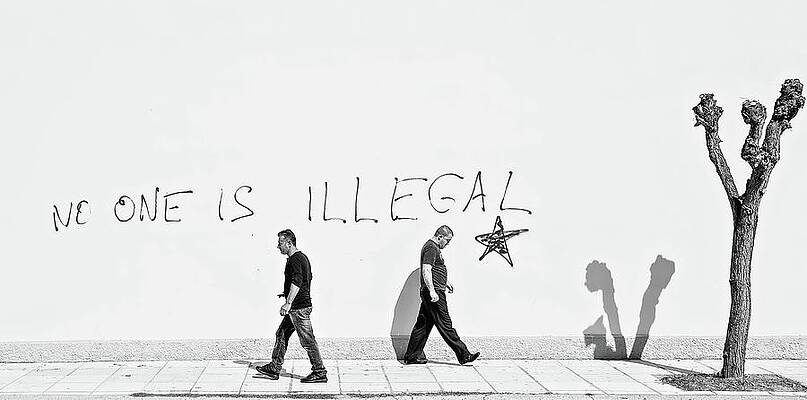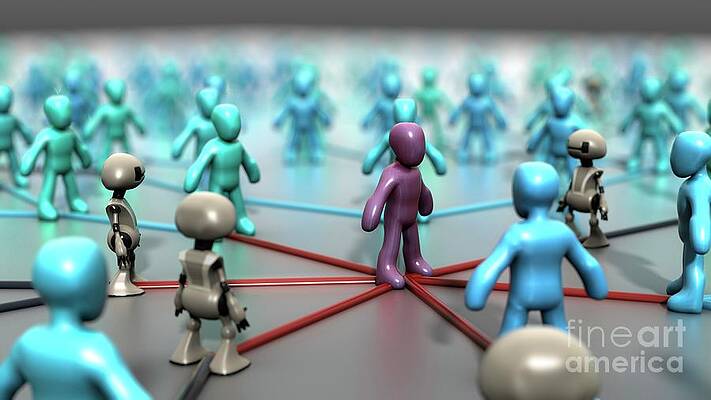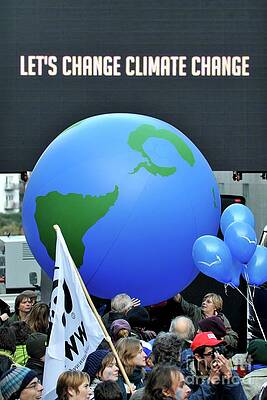The Role of Soft Power in International Relations
Soft power refers to the ability of a country to influence others through its cultural, ideological, and societal appeal, rather than relying on coercion or military might. It can be used to shape public opinion, build alliances, and achieve foreign policy goals without resorting to force. The article delves into the concept to understand how global governance functions in an alternative model of power.
In the world of international relations, the term “soft power” has become increasingly popular over the past few decades. It refers to the ability of a country to influence the behavior of others through persuasion, attraction, and co-option, rather than through coercion or force. This concept, first coined by political scientist Joseph Nye in the late 1980s, has become a crucial tool for understanding the role of culture, ideology, and diplomacy in shaping global politics.
The traditional view of power in international relations has been characterized by the use of military force, economic sanctions, and other forms of coercion to achieve a country’s goals. However, the limitations and negative consequences of such power have become increasingly catastrophic over time. Military interventions often lead to costly and protracted conflicts, while economic sanctions can harm the very people they are intended to help. Moreover, the rise of non-state actors such as multinational corporations, NGOs, and social movements has made it more difficult for governments to exert control through traditional forms of power which have proven to be inefficient over time.
This is where the role of soft power comes in. It relies on attraction rather than coercion and can be wielded by anyone from governments to civil society groups. It is based on the idea that a country’s cultural and ideological values can be a powerful force in shaping global politics. For example, the success of American popular culture – from Hollywood movies to McDonald’s – has helped to spread American values and ideals around the world, making the United States a more influential actor in global affairs. It has led not only to infatuation with the ideals of Western civilisation but also conformity.
Soft power is not just about cultural export; it also involves diplomacy, alliances, and the ability to shape the global agenda. Countries that are seen as leaders in addressing global challenges such as climate change or human rights can build a reputation for moral authority, which can in turn enhance their influence in other areas. By taking a leadership role in global governance institutions such as the United Nations or the World Health Organization, countries can shape the norms and rules that govern international behavior.
One of the most important aspects of this concept is its ability to build relationships and create networks of influence. Diplomacy, for example, is a key tool of soft power, allowing countries to build trust and rapport with other nations. By engaging in dialogue and building relationships, countries can create a sense of mutual understanding and respect, which can help to prevent conflicts and promote cooperation. This is why cultural exchanges, such as student exchanges or artistic collaborations, can be such a powerful tool for building relationships between nations.
In recent years, the concept has become increasingly relevant to the study of international relations and global affairs. As the world becomes more interconnected and the influence of non-state actors grows, the ability to persuade and attract others becomes ever more important. Moreover, as global challenges such as climate change and terrorism become more pressing, the need for effective global governance institutions and cooperative action becomes more urgent.
In 2008, the Norwegian government launched the Norwegian International Climate and Forest Initiative (NICFI) intending to reduce greenhouse gas emissions caused by deforestation in developing countries. The initiative was a response to the recognition that deforestation is a major contributor to climate change, accounting for around 10% of global greenhouse gas emissions. The NICFI focuses on providing financial support to countries that take action to reduce deforestation and promote sustainable land use practices. However, what makes Norway’s approach unique is its emphasis on soft power, using its reputation for environmental leadership and its ability to convene international partners to build support for its initiative.
One example of this soft power approach is Norway’s partnership with Indonesia.
In 2010, Norway committed to providing Indonesia with up to $1 billion in funding if the country could demonstrate significant reductions in its deforestation rates. The partnership was not just about financial support – Norway also provided technical assistance and expertise to help Indonesia develop policies and programs to reduce deforestation. Norway’s reputation as a leader in environmental protection and its emphasis on dialogue and cooperation helped to build support for the partnership. Other countries, such as Brazil and Liberia, also joined the initiative, attracted by Norway’s reputation and the potential benefits of reducing deforestation.
Over time, the initiative has shown promising results. In Indonesia, deforestation rates have declined by about 60% since 2016, due in part to the government’s efforts to implement sustainable land use policies. Moreover, the initiative has helped to raise global awareness of the importance of addressing deforestation as a way to combat climate change. Norway’s approach to tackling deforestation in the tropics offers a compelling example of how the concept of soft power can be used to address global problems. By leveraging its reputation and convening power, it was able to build partnerships and support for its initiative, ultimately leading to positive changes on the ground. The NICFI shows that soft power, when wielded effectively, can be a powerful tool for shaping global politics and addressing complex challenges.
Soft power is often dependent on a country’s underlying economic and military strength, which also serves as its biggest limitation since a country that is perceived as economically weak or militarily vulnerable may find it difficult to wield much power. By building relationships, shaping global norms, and promoting cultural and ideological values, countries can enhance their influence and achieve their goals more sustainably and effectively. However, soft power is not a panacea and must be wielded in conjunction with other forms of power and in recognition of its limitations.
source: https://nickledanddimed.com/2023/06/08/the-role-of-soft-power-in-international-relations/



